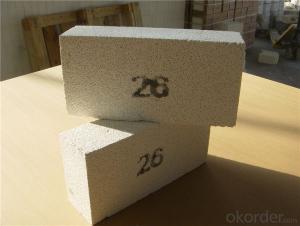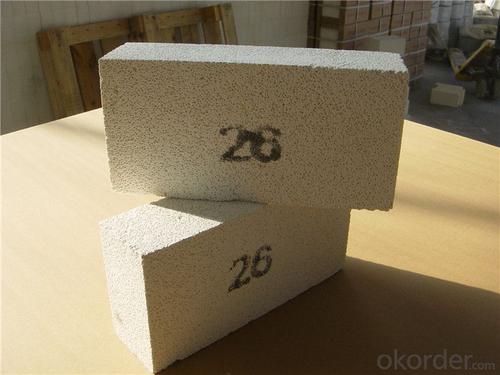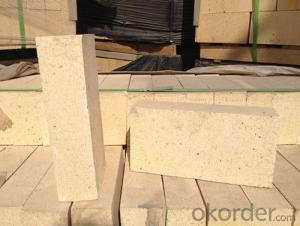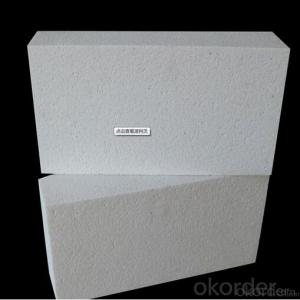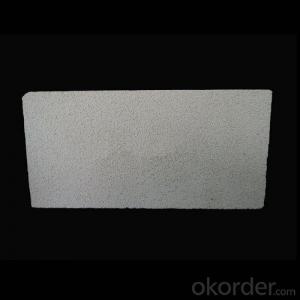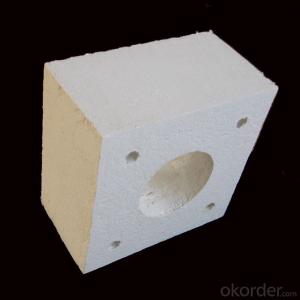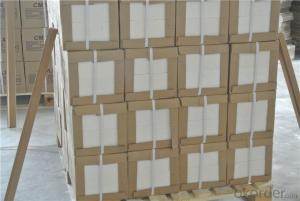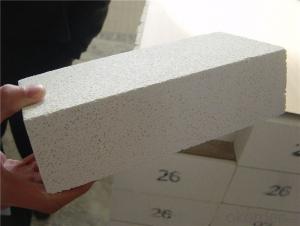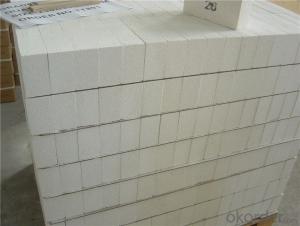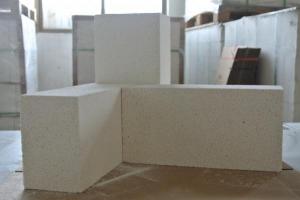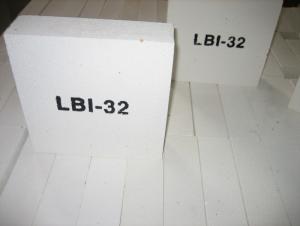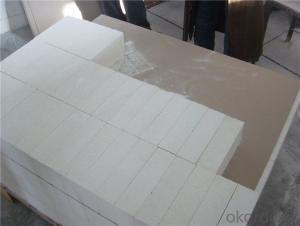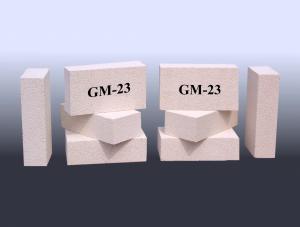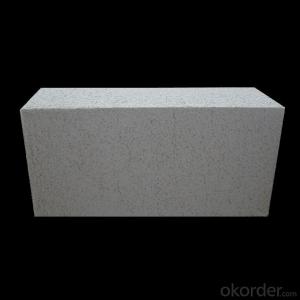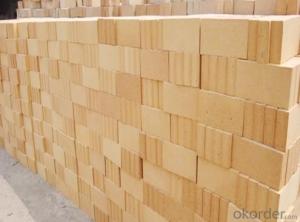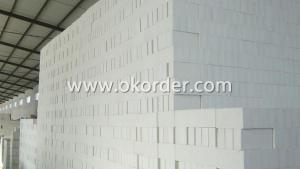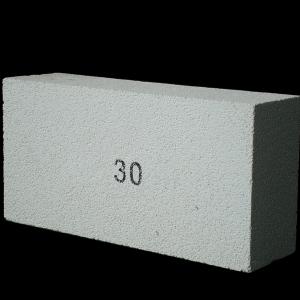GJM 30 Light Dense Mullite Insulating Fire Brick
- Loading Port:
- Shanghai
- Payment Terms:
- TT OR LC
- Min Order Qty:
- 1 m.t.
- Supply Capability:
- 10000 m.t./month
OKorder Service Pledge
OKorder Financial Service
You Might Also Like
Thermal Insulation Fire Clay Brick
Refractory brick is a refractory material used in lining furnaces, kilns, fireboxes, and fireplaces.
We provide high quality Refractory Fire Bricks that are used on wide range in the various industries like Cement, Glass and Steel. Refractory Fire Bricks are provided as per the quantity and specifications required by the customers. We provide an extensive range of Refractory Fire Bricks at reasonable prices that depend upon the quantity ordered.
Application
Insulating Fire Brick are used for the lining of converter, alternating current arc furnace, direct Current arc furnace and the ladle slag line, etc.
Company Advantage
(1)Long Insulating Fire Brick manufacture history: 25 years manufacturer
(2)Advanced equipment and good service
(3)Diversification of production standards: ISO ANSI FEPA JIS ASTM
(4)Flexible payment: T/T L/C D/P D/A
(5)Professional marketing team and after-sale service
Insulating Fire Brick main feature:
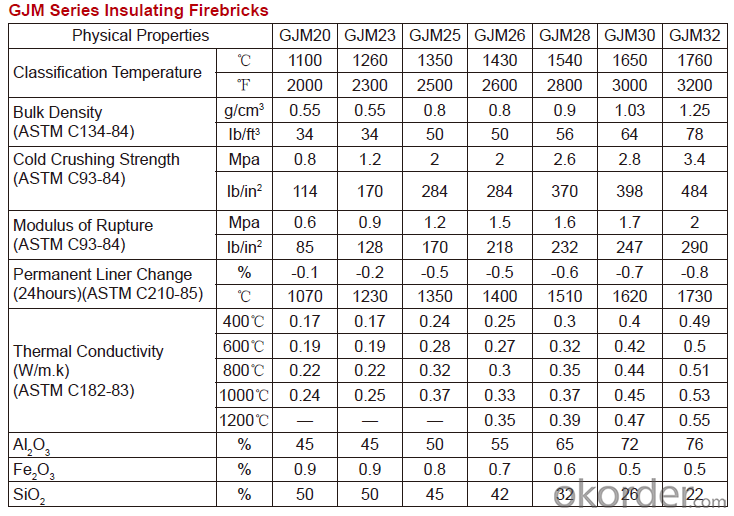
Equipment
1 unit of Ceramic Abrasive (SG Abrasive) pilot production line
2 units of Compact grain Abrasive pilot production lines
1 unit of high-end coated abrasives (abrasive cloth) production line
3 large flexible crushing and sieving lines for grit production lines
6 units of 5000KVA-10000KVA dumping type electric arc furnaces for Brown Fused Alumina fusion
FAQs
Q1 What’s the transport method?
A1 FCL delivery goods with wooden pallet or wooden case by sea; If LCL delivery, must with wooden case; Sometimes need open top, flat rack or bulk cargo.
Q2 What’s the required payment term?
A2 Generally 30% TT as the prepayment, 70% TT before delivery. If need, 100% Irrevocable Letter of Credit or negotiation.
Q3 Which country are our products exported to?
A3 Apart from entire Chinese market, the US, Russia, Japan, Korea, Australia and some Southeast Asian Nations.
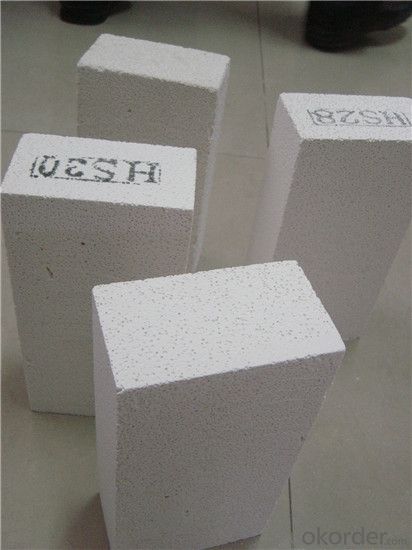
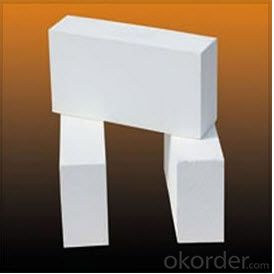
- Q: Can insulating fire bricks be used in the construction of smelters or foundries?
- Yes, insulating fire bricks can be used in the construction of smelters or foundries. Insulating fire bricks have excellent thermal insulation properties and can withstand high temperatures, making them suitable for lining the walls and floors of smelters or foundries. They help to retain heat, improve energy efficiency, and protect the surrounding structures from extreme temperatures.
- Q: Are insulating fire bricks resistant to abrasion or erosion?
- Yes, insulating fire bricks are resistant to both abrasion and erosion.
- Q: Do insulating fire bricks have a high fireproof rating?
- Insulating fire bricks indeed have a high fireproof rating. These bricks are specifically designed to withstand extremely high temperatures and provide excellent insulation against heat transfer. They are made from special refractory materials that have low thermal conductivity, which helps in retaining heat and preventing it from escaping the system. Insulating fire bricks can withstand temperatures ranging from 2300°F to 3100°F (1260°C to 1700°C), making them ideal for use in furnaces, kilns, fireplaces, and other high-temperature applications. Their high fireproof rating ensures that they can effectively protect structures and equipment from the intense heat and flames, allowing for safe and efficient operation in various industries.
- Q: Can insulating fire bricks be used in the construction of gas kilns?
- Yes, insulating fire bricks can be used in the construction of gas kilns. Insulating fire bricks are designed to have low thermal conductivity, which means they can help retain heat and improve energy efficiency in a kiln. Gas kilns require proper insulation to ensure that heat is evenly distributed and maintained within the kiln chamber. Insulating fire bricks can be used to line the walls, floor, and ceiling of the kiln, creating a barrier that helps to prevent heat loss and improve the kiln's performance. Additionally, insulating fire bricks are lightweight and easy to work with, making them a popular choice for kiln construction projects.
- Q: Can insulating fire bricks be used in biomass boilers?
- Yes, insulating fire bricks can be used in biomass boilers. These bricks are designed to withstand high temperatures and provide excellent insulation, making them suitable for use in biomass boilers where heat retention is crucial for efficient combustion.
- Q: Do insulating fire bricks have a high fire resistance rating?
- Insulating fire bricks possess an impressive fire resistance rating. These bricks are specifically crafted to endure elevated temperatures while providing exceptional insulation against heat transfer. They are composed of high-purity refractory materials, namely alumina and silica, which possess a high melting point and can withstand extreme heat. With the ability to endure temperatures reaching 3000°F (1650°C), insulating fire bricks exhibit significantly lower thermal conductivity compared to ordinary bricks or alternative materials. This renders them highly suitable for applications necessitating strong fire resistance, such as industrial furnaces, kilns, fireplaces, and chimneys. Moreover, their insulating properties aid in reducing heat loss, thereby promoting energy efficiency and cost-effectiveness.
- Q: Are insulating fire bricks resistant to fire?
- Yes, insulating fire bricks are specifically designed to be highly resistant to fire. They have excellent insulating properties and can withstand high temperatures without cracking or breaking down.
- Q: Can insulating fire bricks be used in biomass power plants?
- Yes, insulating fire bricks can be used in biomass power plants. Insulating fire bricks are designed to withstand high temperatures and provide insulation, making them suitable for various applications in high-temperature environments, including biomass power plants. These power plants generate electricity by burning biomass materials such as wood chips, agricultural waste, and other organic matter. Insulating fire bricks can be used in several areas of a biomass power plant. They can be used to line the combustion chamber, where the biomass is burned to release heat. The insulating properties of these bricks help to contain the heat within the combustion chamber, enhancing the efficiency of the biomass combustion process. Additionally, insulating fire bricks can be used in the construction of the plant's boiler, which is responsible for converting the heat generated by burning biomass into steam. The bricks can be used to line the walls and roof of the boiler, providing thermal insulation and preventing heat loss. This insulation helps to maintain high temperatures inside the boiler, which is crucial for steam generation and subsequent power production. Moreover, insulating fire bricks can be used in the construction of the chimney or flue system of biomass power plants. The bricks can be used to line the interior of the chimney, ensuring that the high temperatures and corrosive gases produced during biomass combustion are contained and safely directed out of the plant. Overall, insulating fire bricks are an excellent choice for biomass power plants due to their ability to withstand high temperatures and provide thermal insulation. Their use in the combustion chamber, boiler, and chimney systems helps to improve the efficiency and safety of biomass power generation.
- Q: Are insulating fire bricks suitable for use in the construction of drying ovens?
- Yes, insulating fire bricks are suitable for use in the construction of drying ovens. Insulating fire bricks are designed to have low thermal conductivity, which means they can effectively retain heat within the oven. This property is especially important in drying ovens as it helps to maintain a consistent and even temperature throughout the drying process. Additionally, insulating fire bricks have high resistance to thermal shock, meaning they can withstand the rapid temperature changes that may occur during the heating and cooling cycles of the oven. This durability ensures that the bricks will not crack or break under extreme temperature conditions. Furthermore, insulating fire bricks are lightweight and easy to handle, making them convenient for installation in drying ovens. Overall, these bricks provide excellent insulation and thermal stability, making them a suitable choice for the construction of drying ovens.
- Q: Are insulating fire bricks resistant to chemicals?
- Yes, insulating fire bricks are generally resistant to chemicals. They are specifically designed to withstand high temperatures and resist the corrosive effects of chemicals, making them suitable for various industrial applications.
Send your message to us
GJM 30 Light Dense Mullite Insulating Fire Brick
- Loading Port:
- Shanghai
- Payment Terms:
- TT OR LC
- Min Order Qty:
- 1 m.t.
- Supply Capability:
- 10000 m.t./month
OKorder Service Pledge
OKorder Financial Service
Similar products
Hot products
Hot Searches
Related keywords
